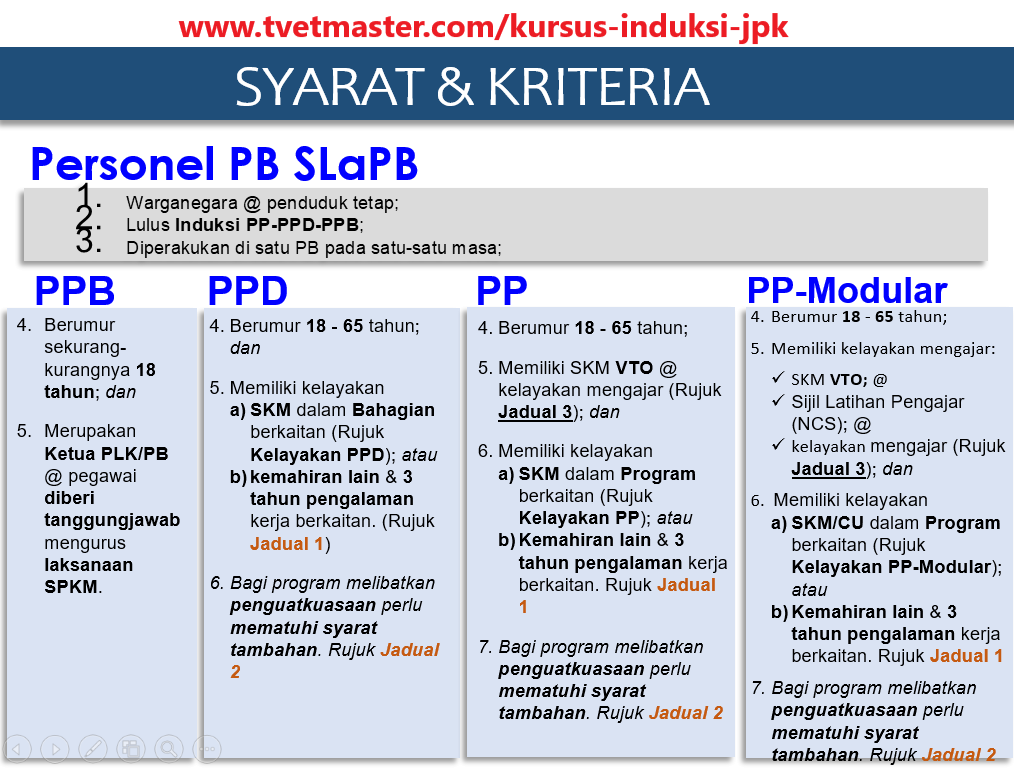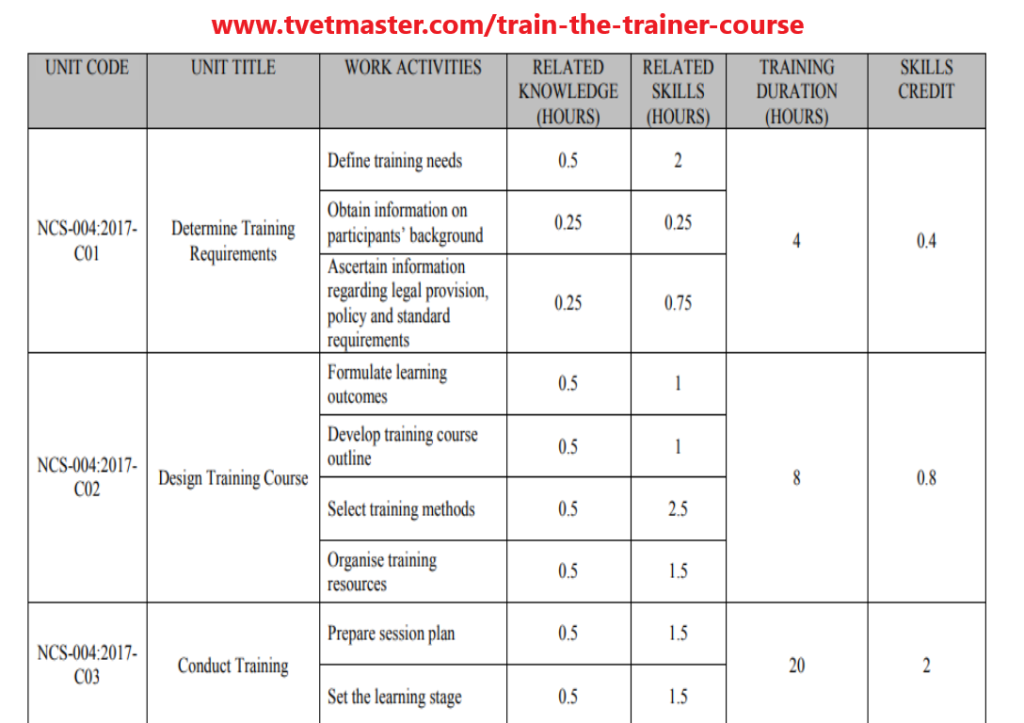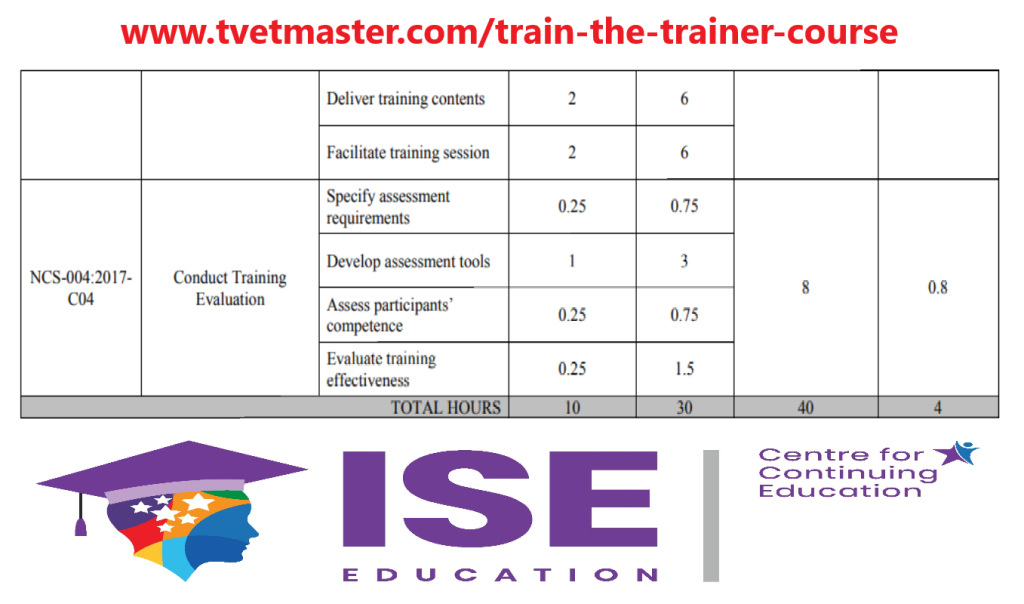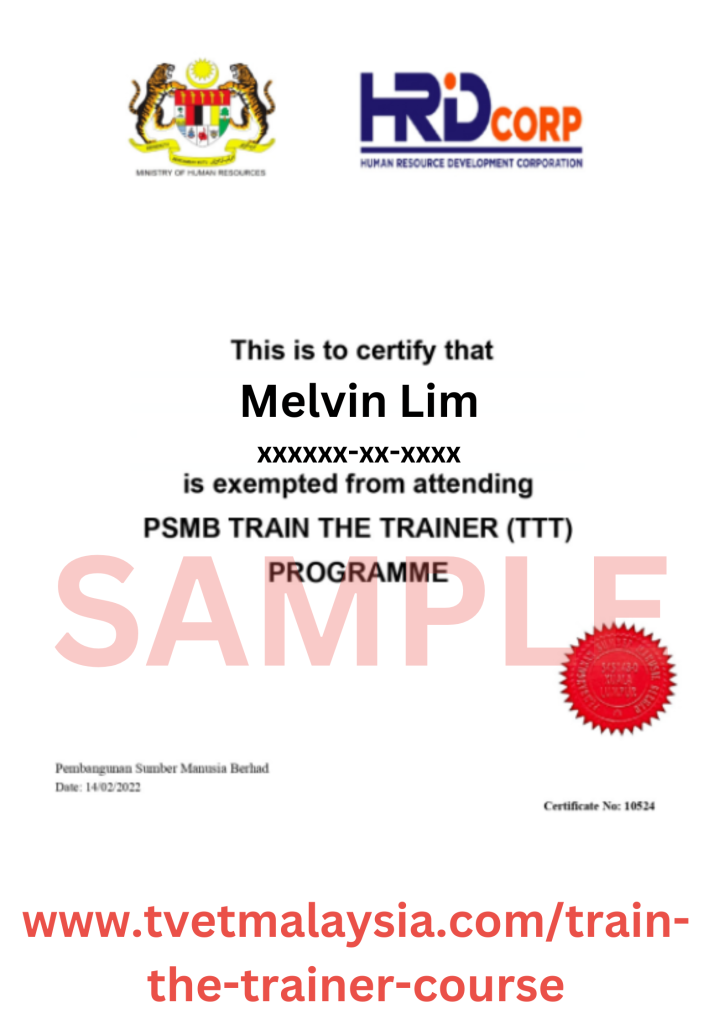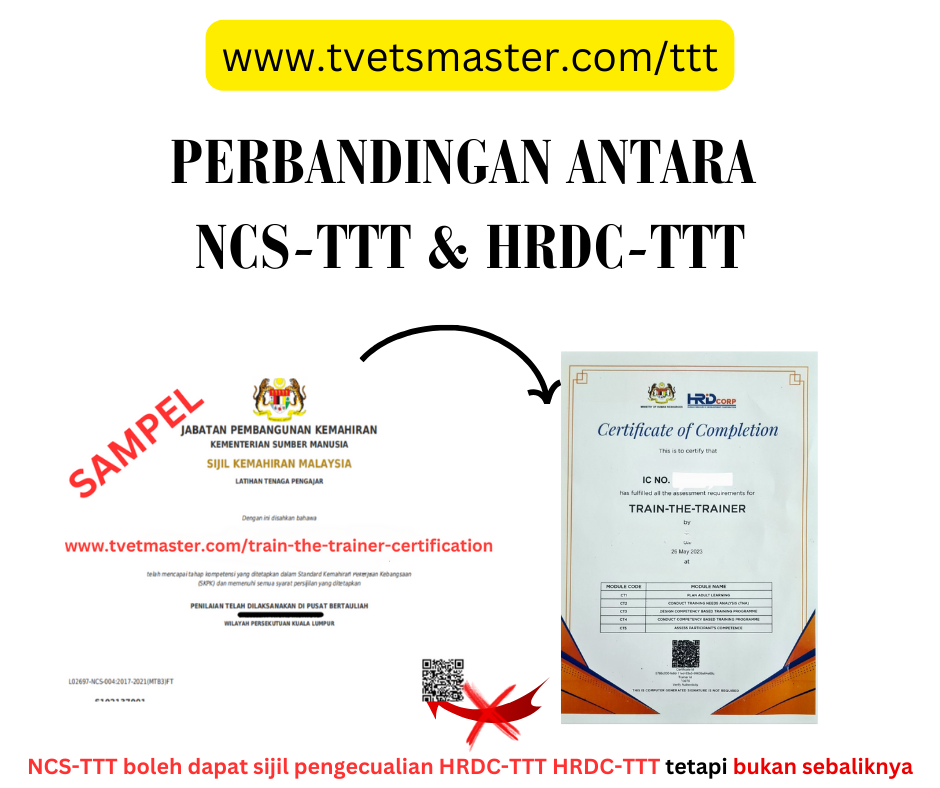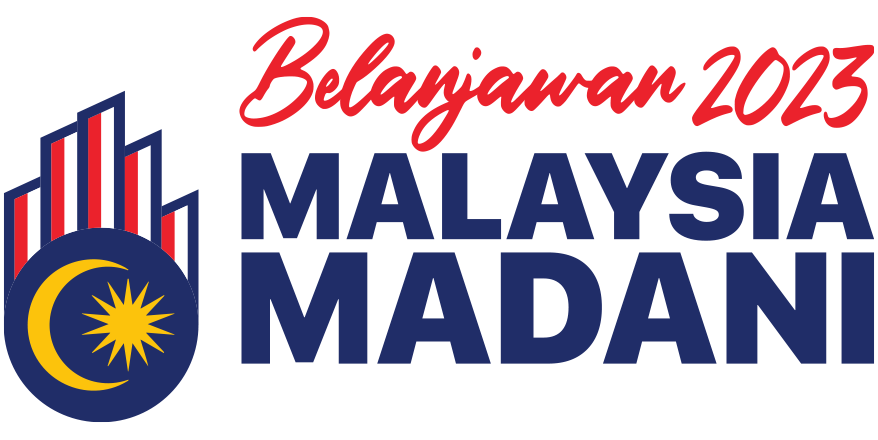Train The Trainer Course
Train The Trainer course (TTT) is well-known in Malaysia, with HRD Corp-TTT under the Human Resource Development Corporation (HRD Corp) being one of the most popular options.
However, you may not be aware there is also the NCS-TTT program under the Department of Skills Development (DSD) or more well known as Jabatan Pembangunan Kemahiran (JPK) and also OSH-TTT Competency Based Programme by National Institute of Occupational Safety and Health (NIOSH).
Here we will mainly discuss the differences between HRD Corp-TTT & NCS-TTT and highlight the benefits of the NCS-Train The Trainer course, including increased career opportunities and the ability to obtain two certificates by just attending one course.
Untuk versi Bahasa Malaysia, sila baca sini.
1. HRD Corp-TTT
Trainer refers to a Professional Trainer certified or accredited by HRD Corp. Under the HRD Trainers Development Framework, Trainers will be categorised as follows:
TTT Certified Trainers
- Trainers who successfully completed the 5 days HRD Train The Trainer course (TTT) and certified by lead trainers are recognised as TTT Certified Trainers.
TTT Exempted Trainers
- Trainers who successfully obtained an exemption for the TTT course based on certification (eg NCS-TTT), qualification or experience are recognised as TTT Exempted Trainers.
HRD Corp Accredited Trainers
- TTT Certified or TTT Exempted Trainers who have gone through accreditation by assessment process – evaluated and certified by HRD Corp appointed panels as competent and recognised as HRD Corp Accredited
- TTT Certified or TTT Exempted Trainers who have gone through accreditation by activity process, certified competent based on 120 hours of training hours completed are recognised as HRD Corp Accredited Trainers.
As a HRD Corp Accredited Trainer, your training is claimable to HRD Corp Registered employer. The quality of a training programme not only depends on the training facilities, it is also highly dependent on the quality of trainers conducting the training. The implementation of HRD-TDF will create a pool of competent and skilled Trainer professionals. This will support the human capital development needs of the nation through better quality and more effective training delivery. The HRD Corp Accredited Trainer status would only be applicable within HRD Corp training landscape that covers various schemes offered by HRD Corp.
Please read here for further information in English.
2. NCS-TTT
The NCS-004:2017 (TTT) is a National Competency Standard under the Department of Skills Development, Ministry of Human Resources. It falls under the National Skills Development Act 2006 (NASDA), and the certificate is awarded by the Department of Skills Development.
If you wish to be a trainer (or more specifically, Assessor for Modular programs; PP-M) in skill-based programs where your candidates can be certified with the Statements of Achievement (PC), you SHOULD have this Train the Trainer certificate.
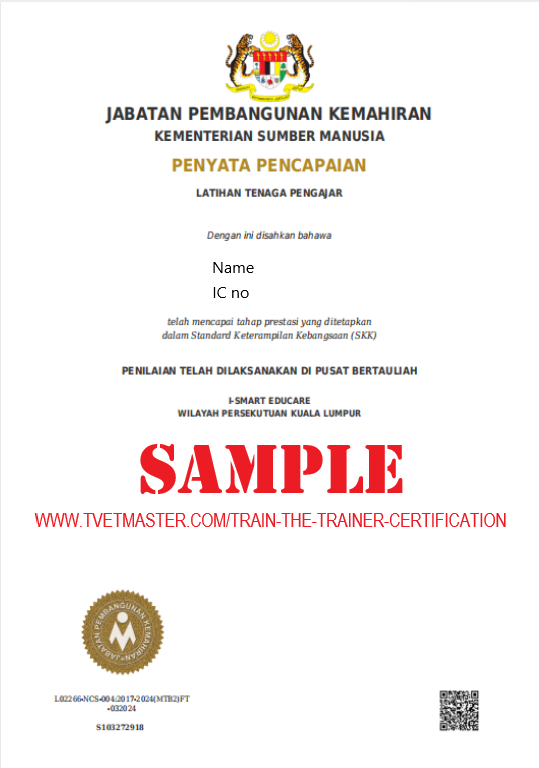
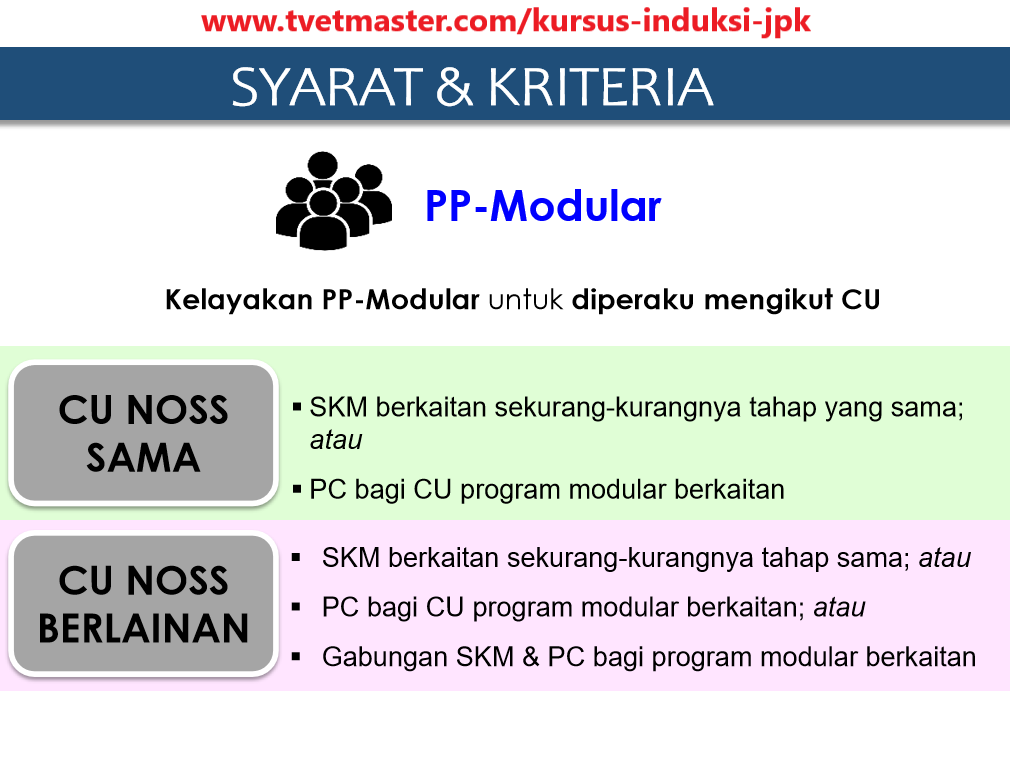
NCS - Train the Trainer Course: Competency Units@Modules
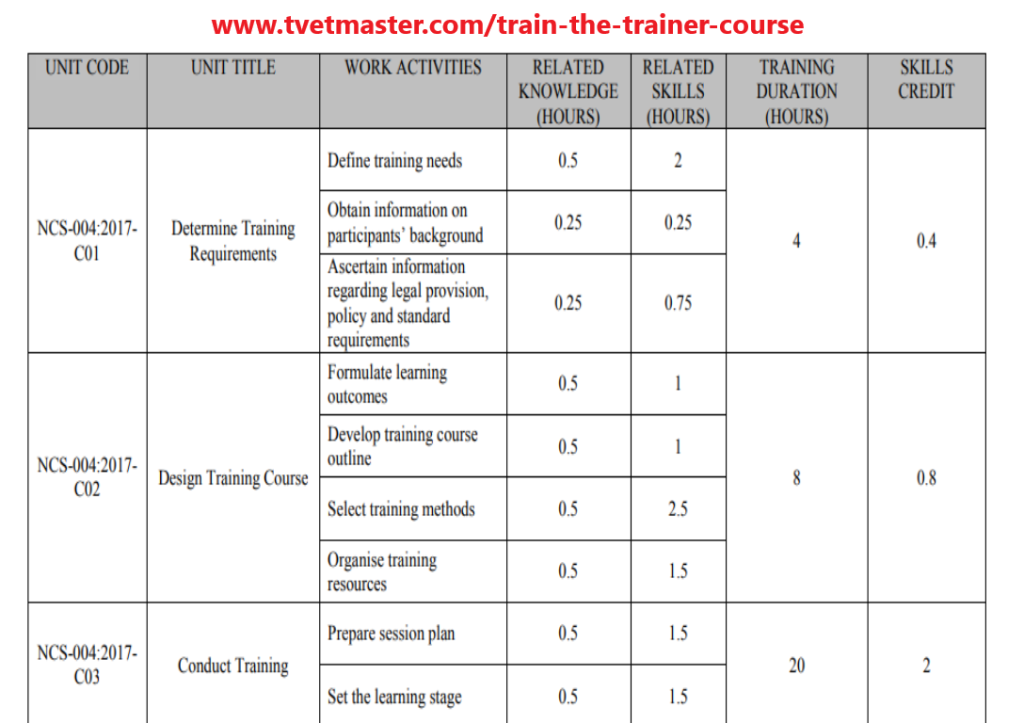
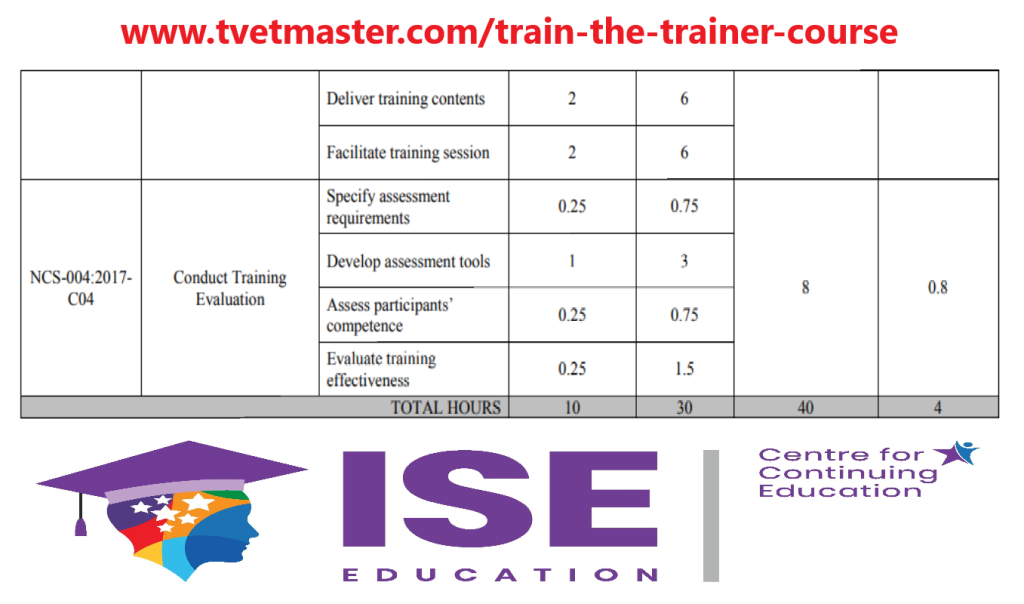
Career and Business Opportunities
- Increase your income as a trainer (Tenaga Pengajar-TP) or Assessor (Pegawai Penilai-PP) for Modular programs (PP-M) at private/public JPK accredited centers (such as Despark International College, SG Academy, Alpine Skills College, Vis Mechatronic College, Federation of Malaysian Skills Development Centres (PSDC, PESDC, SHRDC etc), Vocational Colleges, Polytechnics etc).
- Also can be a trainer conducting HRD Corp claimable programmes (must obtain the HRD Corp-TTT exemption certificate first).
- Expand business opportunities, such as bidding for teaching projects at government agencies, which generally require government-recognized train the trainer course certificates.
- Give students confidence that you are a certified trainer.
- Establish an accredited JPK Center for specific skills (Modular@Micro Credential programs), where the Assessor (PP-M) needs to have a NCS-TTT certificate.
Advantages of NCS-TTT vs. HRD Corp-TTT
The main difference between the two is that with NCS-TTT, you do not need to take HRD Corp-Train the Trainer Course again; you are exempted from attending the course.

If you have the NCS – TTT cert, you can apply to get exemption for HRD Corp – TTT but not vice versa.
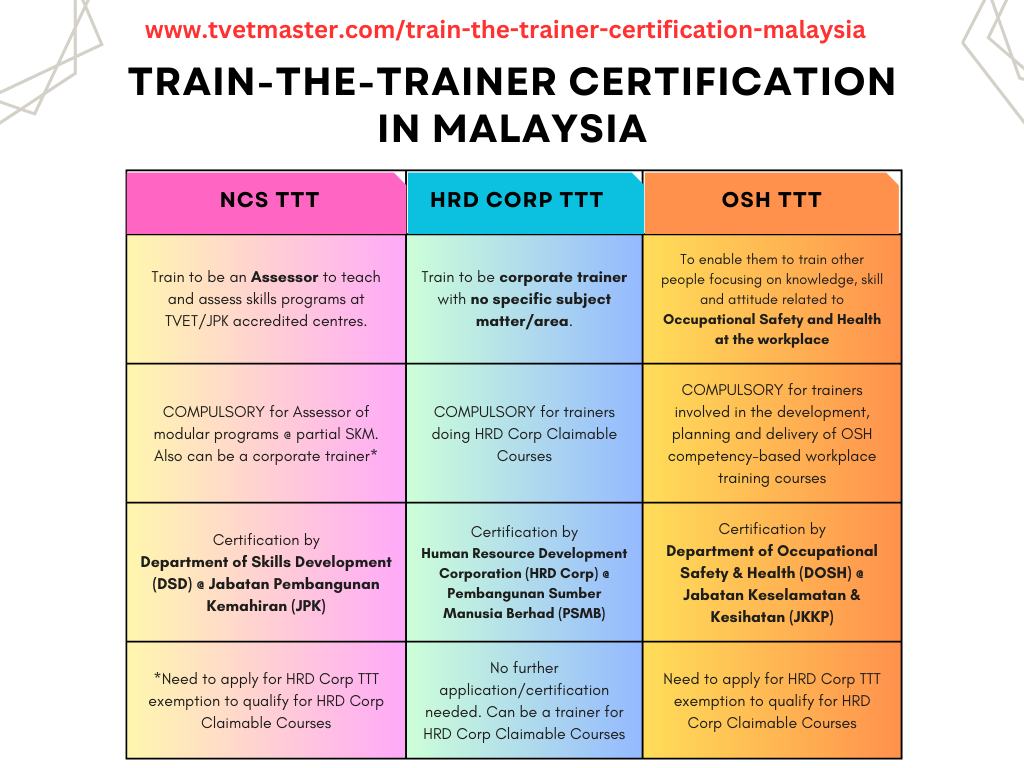
That’s the advantage of the National Competency Standard – Train The Trainer course (NCS-TTT) – invest in the course once only (RM2,800) and you can apply for HRD Corp-TTT exemption (RM300).
At the end of the day, you will get two certificates (NCS-TTT & HRD Corp-TTT cert of exemption).
Do you know the difference between Trainer & Speaker?
Trainers and speakers are two different terms, although they are often used interchangeably. A speaker tends to give a lecture on a specific topic without providing specific training to develop worker skills, while a trainer focuses more on developing worker skills through structured and continuous training.
In addition to helping improve organizational productivity, a trainer can also contribute to an organization’s ESG goals. ESG goals encompass effective environmental, social, and financial management factors. Through proper training, organizations can improve their financial management, ensure effective use of resources, and reduce negative impacts on the environment.
A good trainer can help the human resources department plan their training needs with Training Needs Analysis (TNA). This will help organizations increase productivity by ensuring that their workers have the necessary skills to perform their tasks.
Moreover, through training, organizations can also contribute to the Sustainable Development Goals of Malaysia 2030. These goals encompass five key sectors: people’s well-being, the environment, the economy, institutions, and society. By developing worker skills, organizations can help achieve these goals and bring benefits to the Malaysian community as a whole.
In conclusion, selecting the right training is important to achieve maximum training effectiveness. NCS-TTT and HDRC-TTT are two popular train the trainer courses in Malaysia. In addition, a good trainer can assist the human resources department in designing their training needs through training needs analysis (TNA). Through proper training, organizations can also contribute to the ESG goals of the organization and the Sustainable Development Goals Malaysia 2030.


